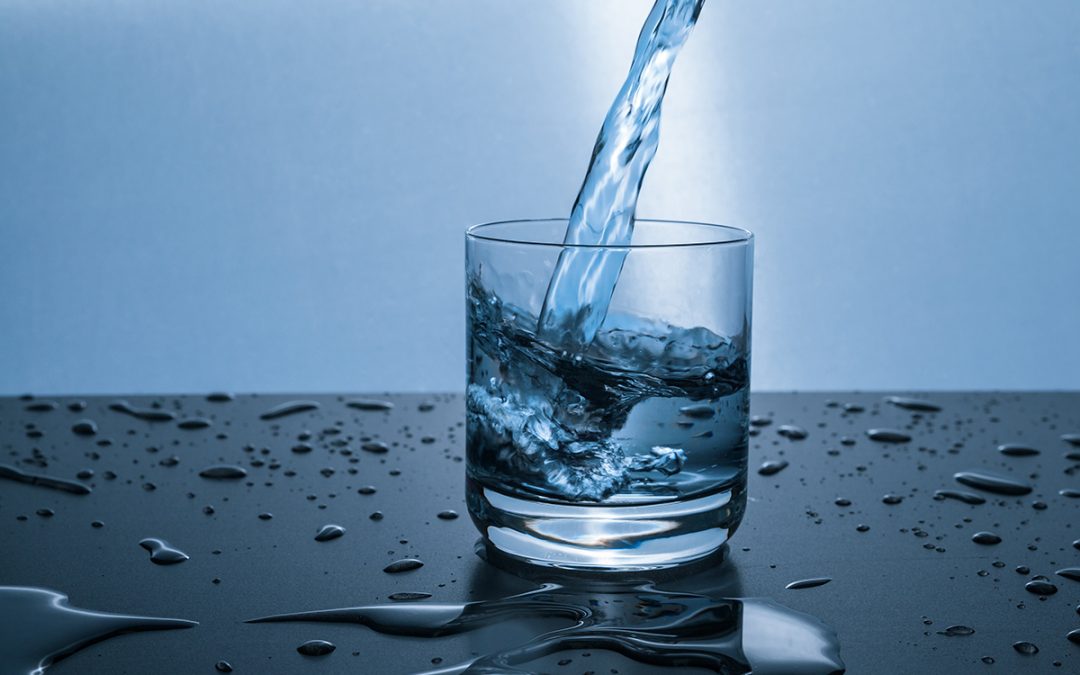Drinking water is one of the most important nutrients you can take in. It’s essential for your cells and for the proper functioning of every biological system in your body, including your brain, skin, heart, and muscles.
Most people have heard they need to drink eight, 8-ounce glasses of water a day, however, the amount you should be drinking is much more individualized than you would think. Each person’s needs are based on certain factors including weight, age, activity level, climate, altitude, one’s current state of health, caffeine and alcohol intake, or other things such as pregnancy and breastfeeding.
To establish a baseline, you can use the following rule of thumb. Take half your body weight and drink that amount in ounces of water each day. You want to try and drink at least half an ounce of water for each pound you weigh. For example, if you weigh 150 pounds, that would be 75 ounces of water a day. If you drink caffeine and/or alcohol, add to that and replace each cup or glass with the same amount in water.
Start with a glass of water first thing in the morning and then continue to sip on and drink water throughout the day, gradually increasing your intake instead of attempting to chug down a lot of liquid all at once.
Think of the dry plant analogy. If you pour a gallon of water on a dry plant, the water will come out of the bottom and will not be able to absorb. However, if added slowly over time, it’s better able to absorb, hydrate and stay saturated.
Our body is composed of about 60% water. Drinking adequate water helps maintain the balance of fluids in our bodies. The functions of these bodily fluids include digestion, absorption, metabolism, circulation, creation of saliva, sweat, transportation of nutrients, waste removal and the maintenance of body temperature. Water creates a signal for a pathway to deliver nutrients to the brain, removing toxins and inflammatory markers, and providing energy sources for the brain.
In addition, water helps energize and build our muscles. It’s essential for the proper circulation of nutrients in the body. When muscle cells don’t have adequate fluids, they can shrink, lead to protein breakdown and won’t work as well. This can result in a decrease in performance, muscle soreness, spasms and/or muscle fatigue.
Are you dehydrated? Here are some possible signs:
- Thirst, dry mouth, and tongue.
- Headache and/or dizziness.
- Muscle soreness and/or spasms.
- Confusion, brain fog, unclear thinking.
- Fatigue, lack of energy and/or changes in mood.
- Constipation, hard bowel movements.
- Formation of kidney stones.
In general, one of the easiest ways to know if you’re drinking enough water is to look at the color of your urine. If you’re drinking enough water, your urine will likely be clear or pale yellow. A darker yellow could indicate that you may be dehydrated.
Drink enough water and you will experience some wonderful benefits:
- Improve energy, performance, and endurance.
- Reduce muscle fatigue and soreness.
- Relieve constipation.
- Increase your focus.
- Regulate your body temperature.
- Maintain a healthy blood level.
- Cleanse the body inside and out.
- Carry oxygen-rich blood and nutrients throughout the body.
- Balance electrolytes.
- Keep skin and tissues moistened.
- Help relieve headache symptoms from dehydration.
- Fewer signs of aging.
Increase your intake of water by 8 oz starting today and feel the difference!

